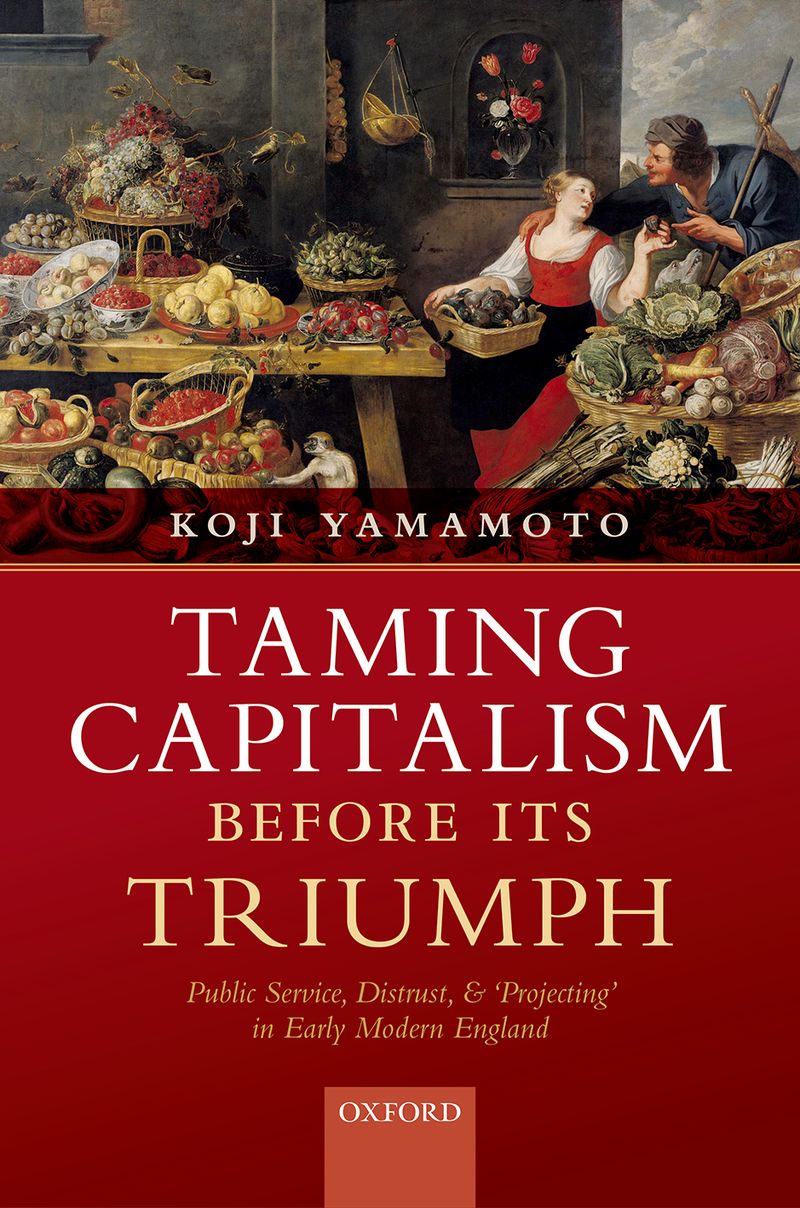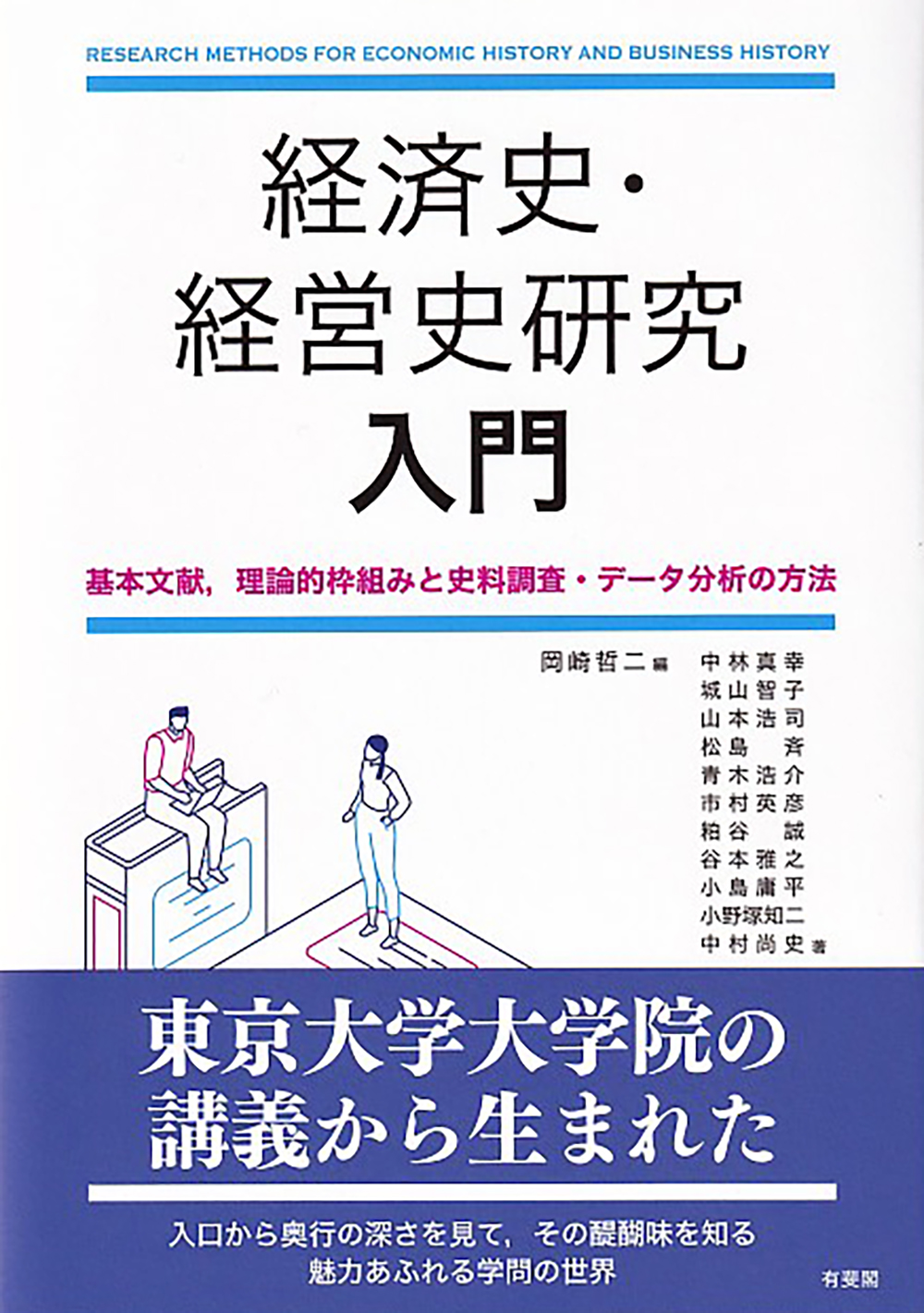
Title
Taming Capitalism before its Triumph Public Service, Distrust, and ‘Projecting’ in Early Modern England
Size
360 pages, paperback
Language
English
Released
August 05, 2021
ISBN
9780192848338 (softcover)
9780198739173 (hardcover)
Published by
Oxford University Press
Book Info
See Book Availability at Library
Japanese Page
Some may see our current times as a period of crisis. Climate change continues unabated, and the novel coronavirus (SARS-CoV-2) disease (COVID-19) pandemic that began in 2019 has had the most devastating impact on the poor worldwide, exposing inequalities and poverty the world over. The strain caused by the intense economic activity that humans have been engaging in and furthering for hundreds of years after creating capitalism now appears to be nearing a breaking point. In such a time, what does it mean for those of us in Japan to study Western economic and business history? Historical research is an intellectual pursuit that seeks to illuminate the past in ways that can also shed light on the present. At best, it humbles us when our arrogance makes us feel all too powerful. However, it also empowers us when our desperation makes us feel quite powerless. This was my belief when I wrote the monograph entitled Taming Capitalism before its Triumph.
***
In textbooks as well as on the Internet, it is common to find an outline of the transition from the Middle Ages—where common folk were denied profit-seeking—to the time of economic development, ending with the modern market society we know today, where profit-seeking has become both socially and religiously justified. If this grand narrative, popularized by sociologist Max Weber and others, is correct, then it would be tempting to suppose that concepts such as CSR (corporate social responsibility), SDGs (sustainable development goals) and ESG investment (environmental, social, and corporate governance investment) are relatively new, and have gained traction in the news and other media cycles only recently amidst the excesses of contemporary capitalism.
Taming Capitalism before its Triumph offers comprehensive evidence that challenge such an interpretation. Focusing on the early modern England of William Shakespeare and Daniel Defoe (circa 1550–1700), this book examines pamphlets, parliamentary minutes, letters, diaries, plays, woodcuts, and other literary texts of the time, and reveals that people who lived around 400 years ago were just as interested in the social responsibility and potential social contribution of private businesses as we are today. However, the analysis also indicates that solving relevant social issues and contributing to national missions through business has never been straightforward.
In fact, the tradition of delving into the social utility of business is quite old, and within Europe, it harks back to at least the 13th century. Soon, Italy and other commercial and cultural entrepôts were filled with ambitious merchants and craftsmen actively seeking to use their expertise to solve the issues of the city-state. When the so-called “absolute monarchy” emerged in the 16th century, Western European countries competed for supremacy in both war and trade. Business formed a symbiotic and collusive relationship with state power; the promise of business’s social contribution was, at times, even abused to increase state power and pursue the self-interests of those who frequented the court.
Early modern England thus witnessed the rise of a society in which the state co-opted businesses while businesses co-opted the ambitious yet needy State. Thus framed, the book explores the following questions that still concern us today: “How have promises of serving the public been realized and, at times, abused?” and “How have politicians, playwrights, and the publishing industry and its readers responded to broken promises of promoting the public good?” This is the first study that systematically explores the taming of incipient capitalism before its triumph, a history of how men and women responded when promises of public service went badly wrong. The book also sheds light on the previously little-known prehistory of CSR, which could offer useful insights for experts, analysts, entrepreneurs, journalists, and others concerned with the future of business and society.
(Written by YAMAMOTO Koji, Associate Professor, Graduate School of Economics / 2022)
Table of Contents
1 Contexts and Contours
2 Broken Promises and the Rise of a Stereotype
3 Reformation and Distrust
4 Turning a Project into Reality
5 Memories, Propriety and Emulation
6 Consuming Projects
Conclusion: Visible Hands Taming Capitalism
Related Info
https://global.oup.com/academic/product/taming-capitalism-before-its-triumph-9780198739173?cc=jp&lang=en&
Reviews:
‘Koji Yamamoto’s superb book … offers a fascinating account of how the productive capacities of economics initiatives were promoted and its destructive tendencies contained.’ - Carl Wennerlind, Business History Review
‘Koji Yamamoto’s much-awaited book addresses how the impact of economic change upon society can be accommodated. ... it deserves to find a very wide readership.’ - Aaron Graham, Economic History Review
‘Yamamoto’s timely and important new book … offers an important lesson for our own times, that a fully unregulated capitalist market will inevitably tend toward abuse and inequality, promoting private gain over the public good. Only when the free market is tamed can it function properly, and that process is both active and visible.’ - Eric H. Ash, Journal of Modern History
‘[An] ambitious and yet meticulously researched book ... Yamamoto's willingness to tackle head on the grandest of narratives about early modern England signifies the extent of his ambitions. However, this is not at the expense of close contextualised reading of the early modern evidence, resulting in an impressive balance between detailed case studies and striking generalisations. ... an impressive and indeed agenda setting work.’ - Thomas Leng, Seventeenth Century
'[I]mmensely pleasing and impressive ... Yamamoto's book resembles the bullseye of a huge diagram. Its larger intersecting circles include the history of innovation and regulation; elite and popular literary sources; and legal, political, and social history. In smaller circles there is history of science, religious history, the analysis of memory, sociologist Erving Goffman's work on stigma, and more. The outcome of these intersections is ... a persuasively coherent extension and revision of important prior work on economic innovation by Joel Mokyr and Paul Slack ... This is a magisterial book that should be read not only for its substantive claims but as a methodological model for a deeply nuanced account of seventeenth-century developments.' - David Zaret, Journal of British Studies
‘[A] deeply researched, ambitious, and impressive examination … medievalists will benefit by thinking with him both about method and theory.’- Martha Howell, The Medieval Review



 Find a book
Find a book


 eBook
eBook